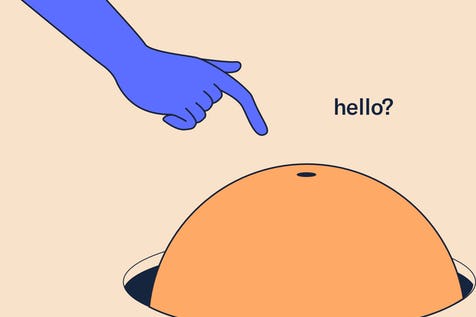When the world is shaking, finding stability within yourself can help you overcome difficult times. The COVID-19 pandemic slowed the world down, making everyone turn to themselves. Although daunting and scary, this time is perfect for developing a new self-care habit. Self-care brings harmony, building a foundation for self-love and growth. We often forget that caring for oneself starts with small things: attention to physical and psychological changes, maintaining a healthy lifestyle, and being curious about what’s best for you.
Now, more than ever, self-care and radical self-knowledge are important to supporting mind and body balance. It’s normal to feel overwhelmed and more anxious than usual. Perhaps we can use this time to help us delve into our mind and body and understand our needs better. But let’s be kind to ourselves – taking on too many new routines can add more pressure.
How to turn self-care into a habit?
Self-care is attention to your body and health
A healthy body is key for a happier mind. Our bodies go through a lot of physical and mental distress, making it easy to forget their needs. The solution is to notice changes in your body and seek professional medical attention because even minor alterations might signal more severe health conditions. While sports and diet are important for overall wellness, occasional medical exams are key to maintaining overall health.
However, we tend to minimize our health concerns because we don’t know much about how our bodies work. At the same time, many women are afraid of seeking medical help because they’re worried that doctors would downplay their health issues. Self-care helps in getting rid of limiting beliefs, understanding your body better, and prioritizing your well-being.
Regular visits to a doctor’s office can help prevent underlying conditions. For instance, reproductive system illnesses can be monitored if detected in early stages. Perhaps not many women know that it’s recommended to get their first cervical cancer exam1 between the ages of 21 to 30. And that women in their early forties should start getting examined for breast cancer2. If we recognize regular health exams as a part of a self-care routine, we can protect ourselves from adverse health conditions.
Self-care is strengthening emotional health amid the daunting times
During self-isolation, it’s easy to fall behind your regular daily routine, eat more snacks, and spend more time in front of the computer. It’s also a challenging time for our mental health. Social isolation and an increase in information consumption can easily make you feel anxious, stressed, and depressed3. In a new Kaiser Family Foundation4 survey, 45% of Americans admitted that the COVID-19 pandemic affected their mental health. It’s too early to see clear tendencies, but here are a few self-care tips that can help improve your mental health.
Breathing exercises
If you practice meditation or yoga, then you probably understand how powerful the breath is. You don’t need any preparation or practice to use your breath to calm down the mind5. Just sit in a quiet place and get comfortable. Take a deep breath into your belly, you can also put your hand on top of the belly to feel it expanding, and then slowly breathe out. Repeat this for 10 or more times, focusing solely on the breath. Mindful breathing helps to calm down the mind and get back to normal breathing pace, relaxing muscles and nerves when you feel anxious.
Enough sleep
Even though we have plenty of time to sleep and rest, these days might not always be productive. If you had to take time off work, your sleeping schedule might have changed, too, which affects sleep quality. Try sticking to the same schedule and regular sleeping hours. Although we spend most of our time inside, our bodies still need daylight. Having a steady sleeping schedule6 not only improves sleep quality but can also help deal with anxiety attacks and depression.
Limiting information intake
Staying informed is essential, but it’s easy to fall into a downward spiral and spend hours searching for new information. Nowadays, the news are rather negative, which can generate stress and negative thoughts. By staying at home in self-isolation, you’re already doing a lot to help fight the pandemic, and reading headlines may only make you feel worse and even paranoid. Understanding that we can’t control the situation can help us get a tighter grip on the things we can control: our actions and approach.
Better Self-Care With Radical Self-Knowledge
When we take care of ourselves, love for body and mind sprouts. And what better way to start your journey to self-care than by getting to know your body. inne is here to help women around the world to understand their bodies better without any medication or interfering with hormonal cycles. The inne minilab uses technology and smart design to encourage women to be curious about their bodies and health, and in that way to develop self-care habits. Learn more about the inne minilab and see how it can improve your self-knowledge and care.
References
1. Cancer.gov, Cervical Cancer Prevention (PDQ®)–Patient Version was originally published by the National Cancer Institute, article consulted on April 2nd, 2020. Available from: https://bit.ly/3fOsF7l
2. The European Commission Initiative on Breast Cancer (ECIBC), consulted on May 14th 2020. Available from: https://bit.ly/2X1lOin
3. Johns Hopkins University, Managing and understanding mental health concerns during the COVID-19 pandemic, article consulted on April 6th, 2020. Available from: https://bit.ly/2Wv6JGE
4. KFF Health Tracking Poll, KFF Health Tracking Poll – Early April 2020: The Impact Of Coronavirus On Life In America. Article consulted on April 2nd, 2020. Available from: https://bit.ly/2X0poJq
5. Healthwise Staff, Stress Management: Breathing Exercises for Relaxation. Article consulted on April 2nd, 2020. Available from: https://bit.ly/3fPfBi5
6. Simon Parkin, Finally, a cure for insomnia? Available from: https://bit.ly/361Zmtj


.png)






